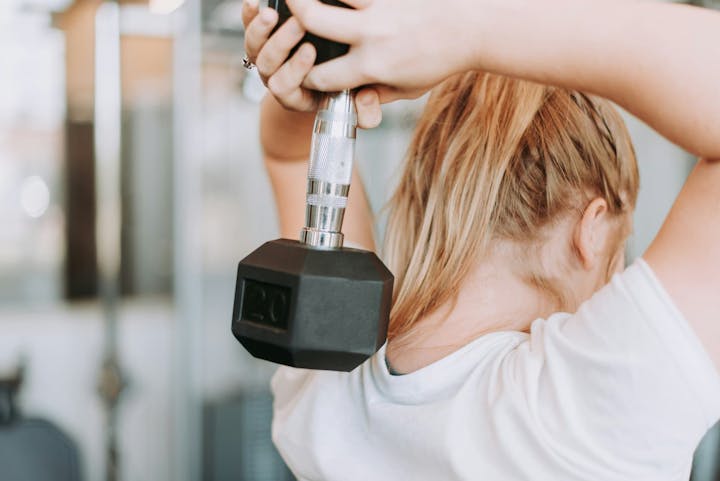Looking for personal training in Amsterdam and curious what to expect? Whether you are a beginner, aiming for muscle building, weight loss, or recovering from an injury, personal training offers many benefits to help you reach your goals faster.
1. Wat is personal training in Amsterdam?
Personal training in Amsterdam means receiving personalized guidance to achieve your specific goals, such as weight loss, muscle gain, increased energy, or injury recovery. The main advantage is that a personal trainer creates a tailored plan just for you.
This plan often includes:
- Individual exercises: Customized training programs based on your strengths and areas for improvement. Sessions usually include a mix of strength training, cardio, and HIIT (high-intensity interval training).
- Nutrition advice: Trainers can analyze your diet and provide recommendations, from calorie guidance to personalized meal plans.
- Lifestyle coaching: Support may extend to stress management, sleep quality, and daily habits, ensuring a holistic approach to your well-being.
The approach is holistic, focusing on both physical and mental health, which helps achieve long-term results.
2. How much does personal training in Amsterdam cost?
Costs vary in general in Amsterdam between €30 and €200 per hour, with the Amsterdam average between €60 and €120 per session. Pricing depends on:
- Trainer experience and qualifications
- Location of training (park, shared gym, or private studio)
- Additional services like nutrition coaching or physiotherapy
Many trainers offer packages, such as 3-month programs, 10-session bundles, or yearly subscriptions, which can save you money. Personal training is an investment in your health that pays off in the long term. Committing to a few months is recommended to achieve meaningful results.
3. What are the benefits of personal training?
The advantages go beyond physical results:
- Personalized approach: Every session is tailored to your goals and fitness level.
- Injury prevention: Trainers monitor your form to prevent injuries and maximize effectiveness.
- Mental benefits: Regular, guided exercise improves mood, reduces stress, and boosts self-confidence.
- Faster results: Focused training and professional guidance accelerate progress compared to training alone.

4. How to choose the right personal trainer in Amsterdam?
Choosing the right trainer is crucial for success. Keep these tips in mind:
- Qualifications and experience: Ensure your trainer is certified and, if needed, has expertise in physiotherapy or nutrition.
- Reviews and recommendations: Check feedback from other clients for insight into the trainer’s style and results.
- Trial session: Many trainers offer a free or discounted first session to test compatibility and see if the approach suits you.
Finding a trainer you enjoy working with ensures you consistently show up and stay motivated.
5. Is personal training suitable for beginners?
Absolutely! Beginners benefit greatly from personal training. A trainer will:
- Teach correct techniques from day one
- Build confidence and prevent common mistakes
- Create a safe, effective, and motivating environment
You’ll enjoy training from the start and see consistent progress.
6. How often should I train?
Training frequency depends on your goals and schedule:
- General fitness: 2-3 times per week builds a solid foundation and results.
- Intensive goals (muscle gain or fat loss): 4-5 sessions per week may be recommended, depending on recovery needs.
- Recovery or rehabilitation: Frequency is adjusted based on your healing process, often in collaboration with a physiotherapist.
A personal trainer can help create a realistic and effective training schedule that fits your life.
7. Does personal training in Amsterdam include nutrition advice?
Yes! Most trainers offer nutrition guidance, ranging from basic tips on calories and macronutrients to comprehensive meal plans. Proper nutrition is essential to achieve fitness goals. Some studio’s and trainers work with dietitians or nutrition coaches for more advanced support.
8. Can I train with an injury?
Yes. Personal training can be excellent for injury recovery, especially with trainers experienced in physiotherapy or rehabilitation. They design programs that:
- Promote recovery
- Strengthen your body safely
- Prevent further damage
Many Amsterdam studios collaborate with physiotherapists for optimal results.

9. How long until I see results?
Results depend on your starting point, goals, and commitment. Generally, with consistent training and proper nutrition, visible changes can appear in 4-6 weeks. Trainers monitor progress and adjust programs to maximize your results.
10. Is personal training worth the investment?
Yes! Personal training provides:
- Tailored guidance for your goals, needs, and lifestyle
- Physical improvements like strength, endurance, and body composition
- Mental benefits including resilience, confidence, and stress relief
Working with the right trainer improves your overall health and well-being.
Ready to start personal training in Amsterdam?
Invest in a stronger, healthier version of yourself today. Take our match test to discover how we can guide you toward your fitness goals and find the perfect personal trainer for your needs.

